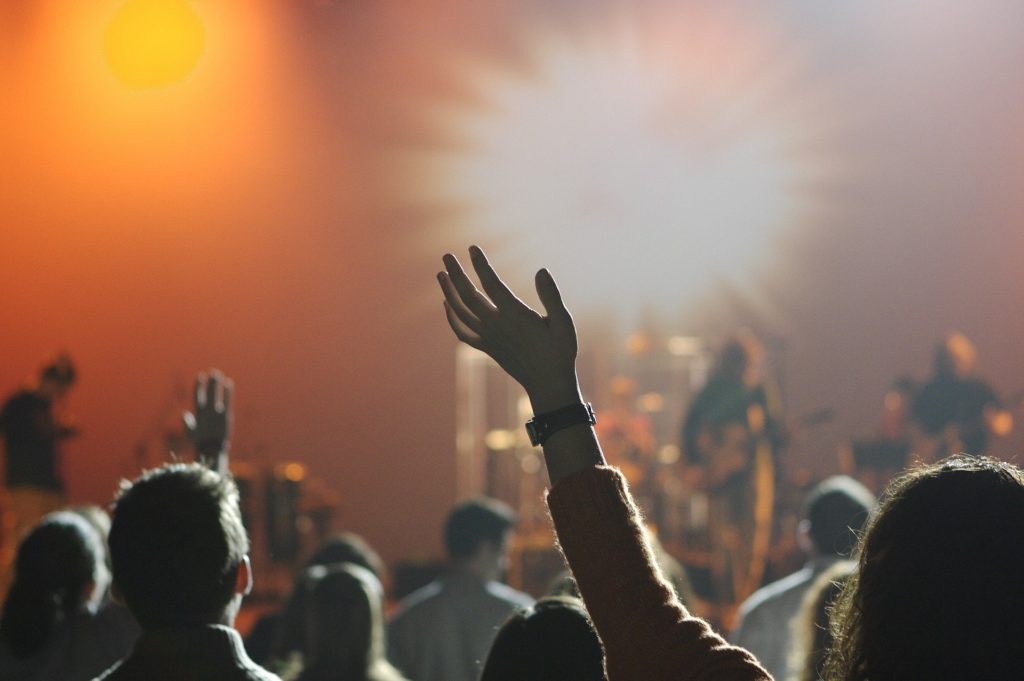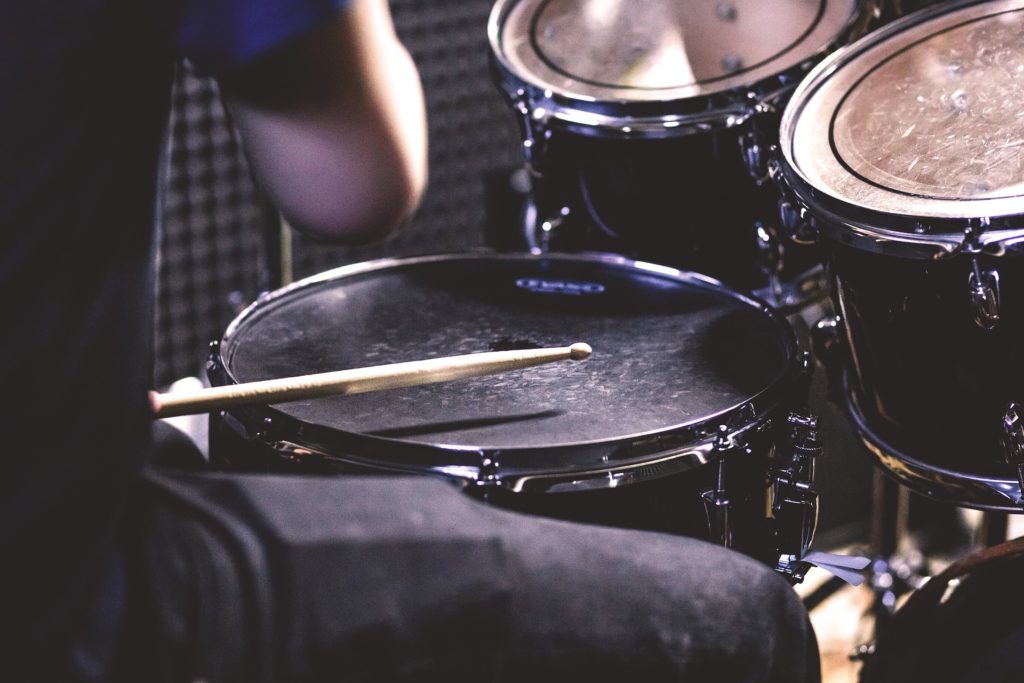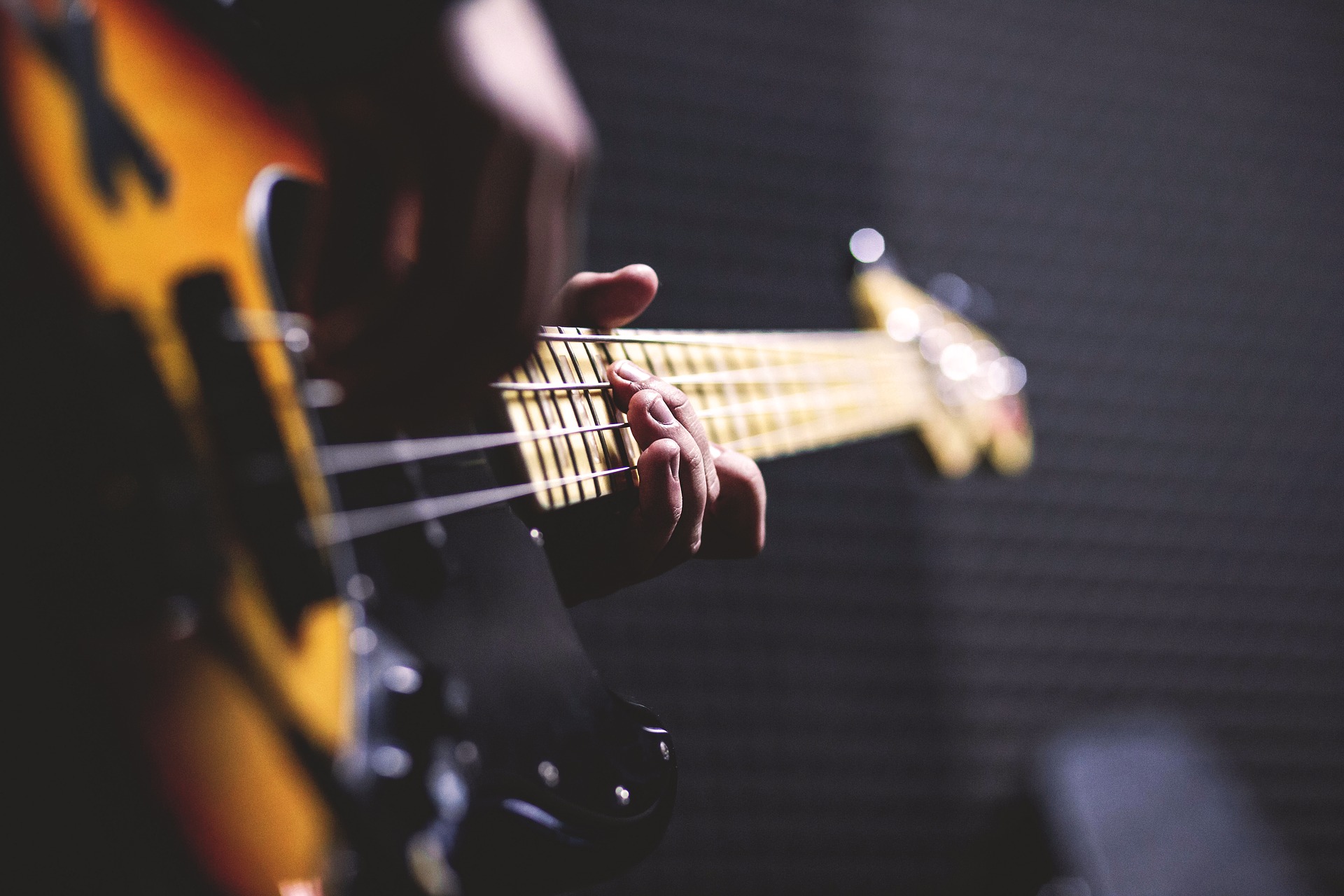The COVID-19 Pandemic has drastically changed everyone’s lives but it may have changed the lives of musicians more than most. Here in Dayton local musicians were not only out of a job but bereft of a passion.
Dayton has always been a musical city. Area bands such as The Ohio Players, Zapp, Slave, and Lakeside contributed greatly to funk music in the ’70s and ’80s. In recent years, music has been an integral part of the effort to revitalize downtown.
The Oregon District has hosted popular music venues for decades and has been one of the biggest draws to bring people into the city. In 2018 the Levitt Foundation picked 8 cities across the nation to build 5 million dollar outdoor concert venues. Dayton was one of them.
In 2019, over 58,000 people enjoyed free performances by 53 musical acts and spent 1.5 million dollars downtown.
Levitt Pavillion did not charge patrons to attend but it helped increase traffic for local businesses — food trucks, bars and restaurants — nearby. Open mic nights, where musicians of any caliber are free to sign up and play, are useful tools to bring people downtown throughout the workweek. But starting in March 2020, live music has looked completely different.

For months music stopped completely. Local bars and music venues had to come up with a variety of creative solutions. Yellow Cab Tavern and the Dayton Beer Company constructed an entire outdoor stage, and Yellow Cab Tavern did the same and extended seating into their parking lot. Blind Bob’s, a bar that has hosted touring and local musicians since 2008, began allowing music on their indoor stage but at first, only one musician was allowed to play at a time.
Brandon Hawk has been a show promoter and booker for Blind Bob’s for almost ten years. On March 15 of last year, he was sitting with his coworkers at Bob’s, looking forward to the show that night. Then one of the bands, Irata, had called Hawk to let them know they weren’t going to make it.
They had been losing tour dates as venues in other states closed down and had decided to head back home. He still had two bands booked to play until 4:00 P.M. when DeWine ordered all bars and restaurants to close. That day marked the 15th anniversary of the start of his career booking shows in downtown Dayton.
Hawk describes COVID as being “a huge roller coaster” for the bar. But he thought they were doing an amazing job of following protocols. However, he noted, it was hard having such a quiet year.
The bar started booking music again in May, but they only allow one artist on stage at a time meaning no bands. The stage is currently serving as a storage space for unused tables to comply with social distancing.
“Getting people back on stage and doing what they’re used to doing is the main goal at the end but we’re not trying to rush that,” Hawk said.
They’re having two shows a week on Friday and Saturday: free admission, first come first serve. Not having music at Bob’s is an anomaly so they’re trying to put on somewhat of a normal performance. In a typical year they would have had music every week from Thursday to Sunday; anything from open mics to acoustic showcases to bands on the weekend.
Luckily, there hasn’t been a huge loss of revenue for the bar. Money from show admissions went to the musicians and anyone who made the show possible. Their biggest hit comes from not having all their tables available.
For musicians like Brian Hoeflich, they went from playing gigs every weekend to none at all. Hoeflich, a drummer for several Dayton bands including Cherry Lee and the Hot Rod Hounds, the Big Wazoo, Trey Stone and the Ringers, Bribing Senators averaged 8 to 12 gigs a month. The amount of times he’s played since March of 2020?
“I can count on one hand the number of times,” said Hoeflich.
For the past 8 years Hoeflich was transitioning from music as a part-time job to it being his full-time job, it was on track to be his primary source of income in 2020. But with all the lost income from canceled performing dates, he’s now working a couple jobs to stay afloat.
One of those jobs is being a studio drummer at Reel Love Recording Studio in Dayton. He is getting called in to do more sessions now since a lot of musicians have been focusing their energy from playing live to recording.

“It’s been a small but essential source of income,” said Hoeflich.
Patrick Himes, owner of Reel Love, said he is operating at about 60% capacity of what he was before the pandemic when he had dozens of clients.
“From March to October [and] November, it was pretty dead,” Himes said.
He has a strict mask policy in place and no more than 3 people are allowed in the studio at once. While he does have more clients coming in, most bands get their recording budget from playing shows which they can’t do right now. Another issue is not being able to have release shows for albums, so musicians are not releasing their music.
“Put it out, people need to hear it right now,” Himes said. “But without release shows,
you can’t make any of your money back.”
Kyleen Downes is a singer-songwriter and guitar teacher. She used to host the open mic at Peach’s Grill in Yellow Springs every Tuesday. She made the decision to have a virtual release show for her June 2020 album Come On Sit Down. If she knew what was going to happen, she would have put the release date off but it was too late; everything was already in the works. She had to put a lot of effort into her website and online presence in order to make sales. Downes enjoyed her virtual release show but it wasn’t what she had dreamed of.
“I just had this sadness and frustration that I had to come to terms with,” she said. “I think it was just going to be a cool show in the Dayton area. And a release show is so exciting. I had to have a moment to grieve that. It is what it is. I think I made the best of it.”
Downes is not the only one experiencing loss because of the lack of live music. Himes explained how not playing music has affected more than just his income.
“For a person who loves traveling and touring, it’s depressing. And you take away local shows, it’s just depressing. It’s not just the financial burden, it’s the lack of social interaction,” he said. “[You have] people you used to see every day, then all of a sudden you don’t. It weighs on you.”
Reel Love used to have an open door policy where people would stop by just to say hi and chat. That’s not an option anymore. Himes misses his friends, seeing what they’re up to and hearing what music they’ve been working on.
What’s next for the music scene in Dayton? It’s hard to say.
“I think there’s going to be a huge renaissance in the beginning of people coming out to shows and appreciating, and buying merch,” Hawk said, “trying to return that sense of normalcy.”
Hawk misses the community of it as shows were how he kept up with people. He misses discovering bands and then thinking of other artists that would go well with their music, as well as their personalities and attitudes.
“There’s nothing like introducing people to one another,” Hawk said, “putting them in a room together and then watching them buddy up–trade shows, trade merch, travel out of town to play with one another. That’s what I miss.”
Everyone agrees there is much more we’re missing out on than just live music.
“Definitely that sense of community,” Downes said. “With the open mics, we had a pretty solid group of regulars that would come out, and it was a nice way to touch base with people. When new people would come out, it felt like your world opened up a little bit. You can’t be as cruel to people if they’re right in front of you. Someone putting themselves out there on stage, it brings out warmth in people.”
Hoeflich said it goes deeper than that, music can be a way to bring humanity together.
“Whether or not anyone in our city realizes it, when they go out to an establishment, bar, anywhere where live music is being performed, it’s connecting them with everyone in the same room as them,” Hoeflich said, “Maybe someone ten feet away from you has nothing in common with you as a person. But they’re there for the same reason you are and you don’t have to talk about it. It’s very vital to help people understand how similar they are, to minimize their differences and to see people as people. I think music is a really good tool for that.”
Rachel Rosen
Reporter


